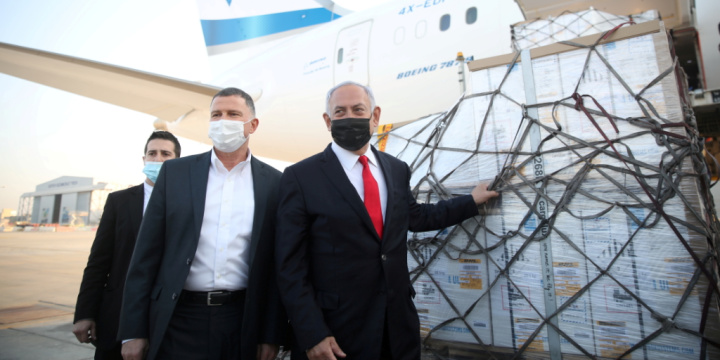On April 10, Israeli occupation forces committed yet another atrocity, murdering three sons and three grandchildren of Ismail Haniyeh, a senior leader of Hamas and head of Hamas’s political bureau. They were, according to Haniyeh, on their way to visit family for Eid al-Fitr when an Israeli drone targeted their car. As he received the news, Haniyeh closed his eyes, paused briefly, and said, “May God have mercy on them.”
His pain is at this point familiar to many across Gaza, as Israeli forces continue a genocide that has led to the deaths of over 41,000 Palestinians, including over 15,000 children who, like Haniyeh’s sons and grandchildren, had their lives stolen from them by Zionist colonial violence.
This is an indisputably cruel act amounting to collective punishment but is far from the first of its kind. Israeli forces have a longstanding history of enacting measures amounting to collective punishment in response to anti-colonial resistance. From the sealing off and demolition of family homes of those who engage in violent acts of resistance in the occupied West Bank to the calculated raids on refugee camps like Jenin (which Zionist forces frame as “counter-terrorism” operations), to the over 17-year-long air, land, and sea blockade of the Gaza Strip, collective punishment has been Israel’s default policy.
When met with military failures that expose cracks in the longstanding facade of Israeli military prowess and invincibility, the reaction has in many instances followed a similar trajectory — not only murdering the families of resistance fighters and leveling entire neighborhoods, but at points risking regional escalation for the sake of saving face and causing pain to those they cannot defeat on the battlefield.
Like Haniyeh, Israeli forces also targeted the family of Hamas military commander Muhammad al-Deif in 2014. The airstrikes killed Deif’s wife and his seven-month-old son after the Israeli military had failed to assassinate Deif for the third time at that point.
Even “successful” assassination attempts have caused undue harm to the family members of those that have been targeted, as was the case of Lamis Nijem, the 17-year-old niece of senior PFLP member and revolutionary literary icon Ghassan Kanafani, who was killed alongside her uncle after an explosive planted on his car by Israeli intelligence was detonated in Beirut on July 8, 1972.
Hamas deputy leader Saleh al-Arouri was assassinated in Beirut in January in a move that risked further escalation in northern Occupied Palestine. As the presence of Palestinian resistance groups persisted in northern Gaza, and while Hezbollah continued to attack Israeli military targets in northern occupied Palestine, Israeli forces found themselves willing to risk an all-out war if it meant preserving perceptions of Israeli military prowess. Aruri’s assassination was at around the same time that a large barrage of rockets was launched by Hamas from northern Gaza into Israel, and later that month Israel rushed to declare that the fighting in northern Gaza was over.
These instances show that Israeli forces do not value the lives of Palestinians and see the families of those who resist as either valid targets in and of themselves (for the purpose of retribution and “deterrence”), or as acceptable collateral damage if it means operational success. And so it is, unfortunately, no surprise that Ismail Haniyeh’s family and families across Gaza are now facing death and other associated horrors as Israeli forces continue to fail to extract a total military defeat of resistance forces on the ground.
As Israeli forces become more desperate for a “victory image,” their tactics against Palestinians will continue to become more violent.
In many ways, the murder of Haniyeh’s children and grandchildren is a microcosm of what we’ve seen over the past months. The Israeli military has been consistently embarrassed by armed resistance groups in Gaza, with defeats and blunders recorded and broadcast to the world.
In the midst of those embarrassments, Israel has taken to lashing out aggressively against Palestinians in Gaza and across occupied Palestine. It is no surprise that the operation targeting Hanyieh’s family occurred only a day after the release of video footage by Hamas’s Qassam Brigades of a multi-layer ambush that seemingly led to the on-camera deaths of several Israeli occupation soldiers in Khan Younis.
It would seem that as Israeli forces become more desperate for a “victory image,” their tactics against Palestinian men, women, and children will continue to become more violent. This is an occupying military force that cannot cope with the reality of military defeat on any scale, lest its legitimacy be eroded. Instead, it chooses to lash out against anyone unfortunate enough to be in the vicinity of its targets.
What we’re witnessing is the death spiral of a colonial project that remains deeply insecure and is hyper-fixated on maintaining its image of “deterrence” through Palestinian death and suffering.
It is also a “negotiation” tactic on the part of Israel. By inflicting sufficient pain on Palestinians, Israel believes it will push Hamas into capitulating to its conditions in the ongoing prisoner swap talks. It is a form of bargaining through collective punishment.
But it is not apparent that this strategy, appalling as it is, has ever achieved any results favorable to Israeli goals. Haniyeh understood this. That’s why, after learning of the murder of his family members, he said, “The enemy is delusional if it thinks that by killing my children, we will change our positions. We shall not give in, no matter the sacrifices.”
Related posts:
Views: 1
 RSS Feed
RSS Feed

















 April 13th, 2024
April 13th, 2024  Awake Goy
Awake Goy 




 Posted in
Posted in  Tags:
Tags: 
















